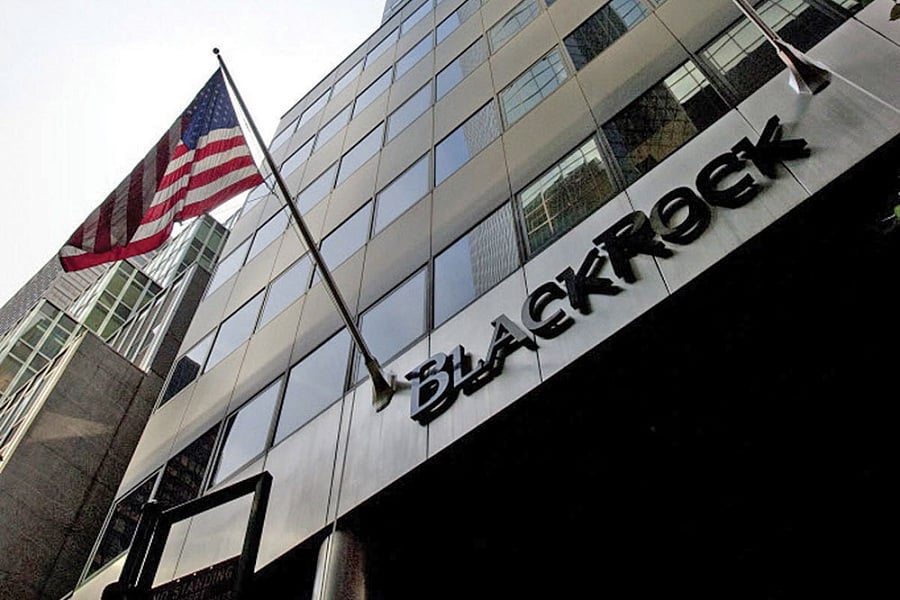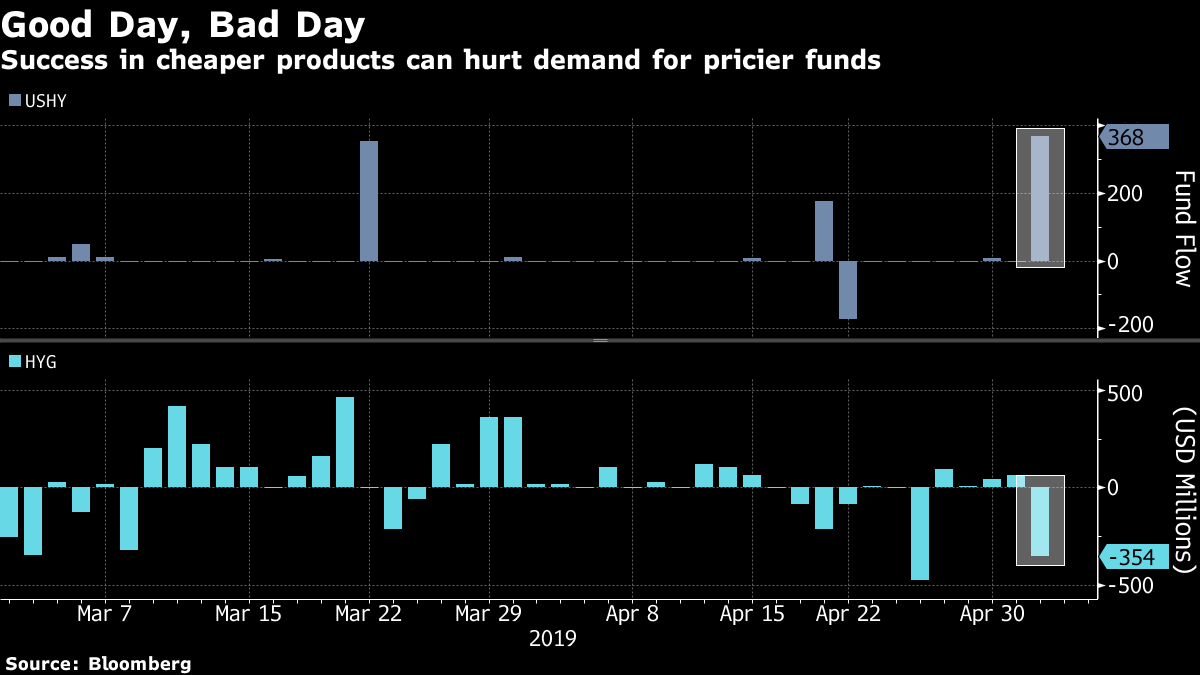

 USHY still has a long way to go in that respect. The fund manages $1.2 billion, about 8%of the assets overseen by the iShares iBoxx High Yield Corporate Bond ETF. That fund, which is known as HYG and costs over three times more, saw $354 million pulled on Thursday.
(More: BlackRock pivoting to technology could serve as blueprint for other asset managers)
"While we expect HYG will remain the vehicle of choice for professional traders and other investors, USHY is ushering in a new generation of bond ETFs that investors can also use in a variety of ways," said Melissa Garville, a spokeswoman for BlackRock.
USHY still has a long way to go in that respect. The fund manages $1.2 billion, about 8%of the assets overseen by the iShares iBoxx High Yield Corporate Bond ETF. That fund, which is known as HYG and costs over three times more, saw $354 million pulled on Thursday.
(More: BlackRock pivoting to technology could serve as blueprint for other asset managers)
"While we expect HYG will remain the vehicle of choice for professional traders and other investors, USHY is ushering in a new generation of bond ETFs that investors can also use in a variety of ways," said Melissa Garville, a spokeswoman for BlackRock.

While industry statistics pointing to a succession crisis can cause alarm, advisor-owners should be free to consider a middle path between staying solo and catching the surging wave of M&A.

New joint research by T. Rowe Price, MIT, and Stanford University finds more diverse asset allocations among older participants.

With its asset pipeline bursting past $13 billion, Farther is looking to build more momentum with three new managing directors.

A Department of Labor proposal to scrap a regulatory provision under ERISA could create uncertainty for fiduciaries, the trade association argues.

"We continue to feel confident about our ability to capture 90%," LPL CEO Rich Steinmeier told analysts during the firm's 2nd quarter earnings call.
Orion's Tom Wilson on delivering coordinated, high-touch service in a world where returns alone no longer set you apart.
Barely a decade old, registered index-linked annuities have quickly surged in popularity, thanks to their unique blend of protection and growth potential—an appealing option for investors looking to chart a steadier course through today's choppy market waters, says Myles Lambert, Brighthouse Financial.
